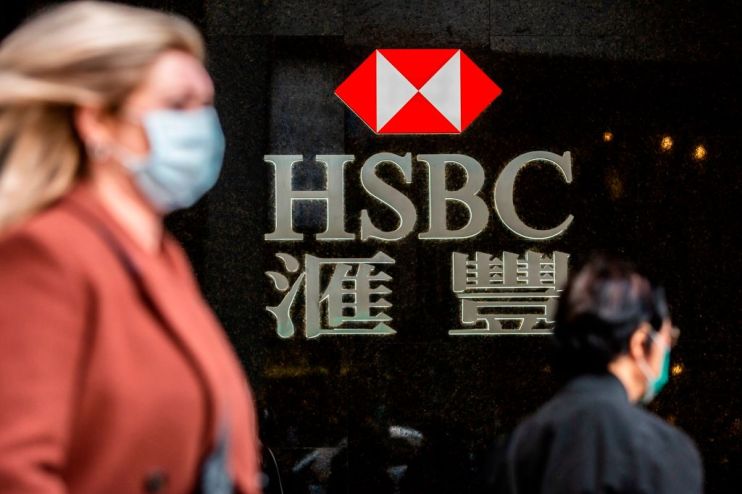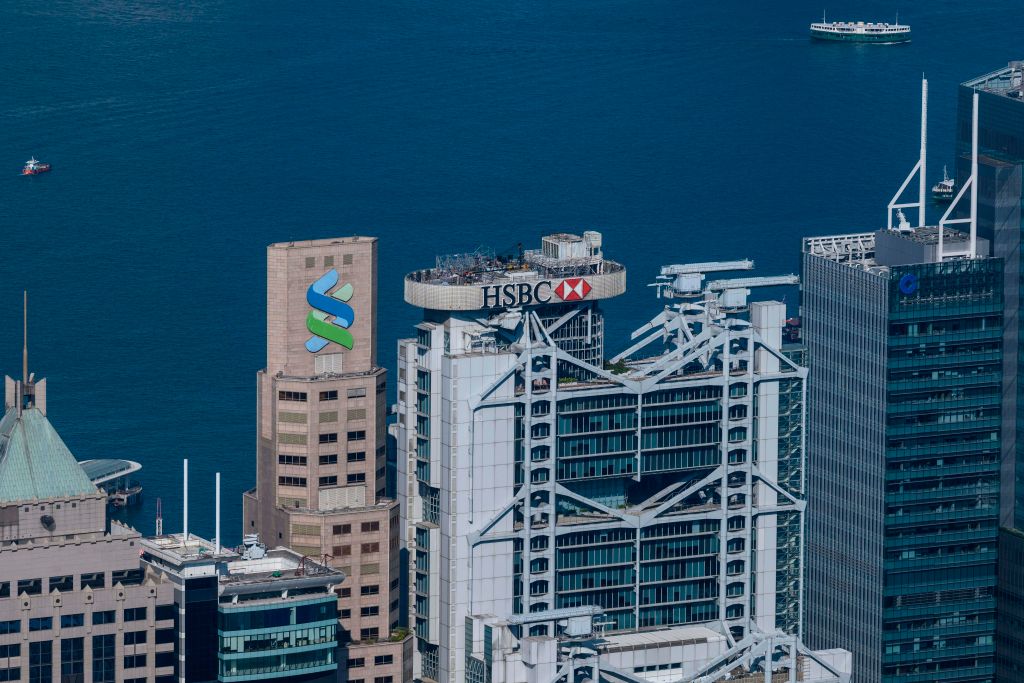HSBC: Profit plunges as bank plans 35,000 job cuts

HSBC has outlined plans to offload $100bn (£77bn) of assets and dramatically downsize its investment banking arm in a restructure that will cost 35,000 jobs over the next three years.
Profit before tax tumbled by a third to $13.6bn in 2019, HSBC said as it revealed its most radical overhaul since the financial crisis in an attempt to reinvigorate its sluggish business.
Under the plans, the London-based bank will merge its private banking and wealth management divisions, axe European stock trading, and slash US retail branches in a bid to cut costs by $4.5bn.
HSBC has struggled to keep up with leaner and more focused competitors in recent years, and is grappling with challenges including Brexit, lower interest rates, the coronavirus outbreak, and slowing economic growth.
“The group’s 2019 performance was resilient, however parts of our business are not delivering acceptable returns,” said interim chief executive Noel Quinn.
“We are therefore outlining a revised plan to increase returns for investors, create the capacity for future investment, and build a platform for sustainable growth. We have already begun to implement this plan, which my management team and I are committed to executing at pace.”
The figures
Attributable profit sank 53 per cent year on year to $6bn, hit by a goodwill charge of $7.3bn largely relating to HSBC’s massive overhaul plan. Profit before tax plummeted 33 per cent to $13.3bn.
Revenue rose four per cent and almost six per cent on an adjusted basis to $55.4bn thanks to good growth in HSBC’s retail banking and wealth management division. The bank is going to combine this unit with its global private banking operations to create one of the world’s biggest wealth management arms.
Despite what the bank called a “resilient” performance in Hong Kong despite protests and the coronavirus outbreak, return on average tangible equity fell 20 basis points to 8.4 per cent.
HSBC reported earnings per share of $0.30, and a dividend per share for 2019 of $0.51.
While the bank said it would keep paying a dividend, it has ruled out share buybacks for two years to pay for the restructuring.
Sign up to City A.M.’s Midday Update newsletter, delivered to your inbox every lunchtime
HSBC shares fall as profit slides
HSBC shares fell as much as 5.76 per cent on the London Stock Exchange to hit 556.7p in early trading as investors reacted to the profit drop.
In Hong Kong, the base for its large Asian operations, the bank’s shares closed 2.78 per cent down on Tuesday following the announcement.
“Overall, we expect the shares to be weak today with HSBC seemingly running hard to stand still on restructuring, a weaker near-term earnings outlook and expensive valuation start-point,” said Barclays analysts.
Read more: RBS to rebrand as Natwest as bank posts £4.2bn profit under new boss Alison Rose
“To say these results were disappointing would be an understatement,” said Nigel Frith, senior market analyst at Ask Traders. “They lay bare the scale of the turnaround required at the inefficient banking giant to put it back on track.”
Jeffries analysts struck a cautiously upbeat note, saying HSBC’s restructuring plan “looks ambitions and very credible”.
‘Meaningful’ job cuts
The banking giant will now target $4.5bn of cost reductions that will see around 35,000 jobs slashed by 2022.
“There will be job reductions necessary to achieve that cost reduction,” Quinn said today.
Although the bank did not announce a headcount reduction target today, Quinn told reporters: “We would expect our 235,000 staff to be closer to 200,000 by 2022.”
The job cuts involved in the restructuring efforts, among the largest to be undertaken by a blue-chip lender for over a decade, will be partially managed through natural attrition as employees leave the bank, Quinn said.
Chief financial officer Ewen Stevenson added that job cuts would be “meaningful” in the UK.
No new chief executive yet
Today’s overhaul announcement, masterminded by Quinn, forms a significant part of the HSBC veteran’s audition to take over the job permanently.
Quinn has led the lender on an interim basis since former boss John Flint was ousted last summer after just 18 months at the helm.
Although many of HSBC’s investors has expected a new boss to be in place before the turnaround plan got underway, it emerged earlier this month that the bank would not name a new boss alongside its results.

Stevenson also said the search for a new chief executive is still underway, but that the board backs Quinn’s turnaround plan.
“The board is fully supportive of the plan,” he said today. “These are changes and initiatives that are fundamentally necessary for the bank and Noel and his team will set about delivering them.”
HSBC chairman Mark Tucker previously having said the search to replace Flint would take six to 12 months.
US banking retreat
HSBC will shed 30 per cent of its US branches and move its fixed-income trading to London as it beats a retreat from its worst performing geography.
Instead the bank will reposition its US operation as a client-focused international corporate bank with a focus on retail.
As a result it will slash assets associated with its US Global Markets business by 45 per cent and cut expenses by up to 15 per cent.
“We looked long and hard at the US retail bank,” Quinn said. “We believe there’s a role for a retail bank like HSBC in the US but it should be focused on internationalism, which is our strength.”
Europe
HSBC is also taking a huge $4bn charge as it reshapes its Global Banking & Markets business. While it will maintain its global investment banking hub in London, it will shift more resources to Asia and the Middle East.
The lender will shrink its European sales and trading and equity research operations, as well as moving its structured products division from London to Asia.
Neil Wilson, chief market analyst at Markets.com, called it a “pivot to Asia on a grand scale”.
“This is as far-reaching an overhaul as you could have imagined and one that’s essentially seeing it walk away from investment banking in the US and Europe,” he added.

Coronavirus
HSBC, whose huge Asian operations are headquartered in Hong Kong, also warned the coronavirus outbreak has had a significant impact on staff and customers.
The epidemic could reduce revenue and cause an increase in bad loans as supply chains are disrupted, Quinn added.
“Longer term, it is also possible that we may see revenue reductions from lower lending and transaction volumes, and further credit losses stemming from disruption to customer supply chains.”
Yesterday, it emerged that the bank had extended its ban on staff travelling to Hong Kong to 16 March, with any exceptions requiring the approval of a senior manager. HSBC is also maintaining an outright ban on all travel to mainland China.